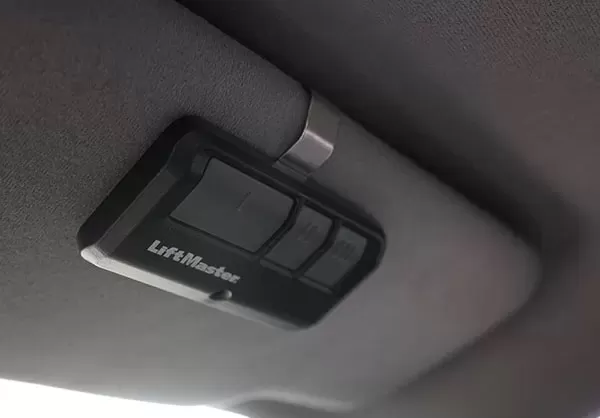Mice in the garage can be more than just a nuisance—they can cause significant damage and pose health risks. These tiny invaders can chew through insulation, wires, and stored items, while also spreading diseases through their droppings. If you’ve noticed signs of mice in your garage, it’s crucial to act quickly so they don’t invade your home. This guide by A Plus Garage Doors will provide you with effective tips and solutions to get mice out of your garage and keep them out for good.
Why Mice Choose Garages
Mice enter human buildings looking for the combination of resources necessary to maintain a mouse nest. By recognizing why mice choose garages, homeowners can take proactive steps to eliminate these attractions, making the space less inviting to these unwelcome guests.
These resources include:
- Access to Food Sources: While a garage may not seem like an obvious food source, it can often contain items that mice find attractive. Mice will eat most types of grain and grain-based food, including pet food, birdseed, trash, and even crumbs from food items commonly stored in garages.
- Abundant Hiding Spots: Garages are often cluttered with boxes, tools, and other items that create plenty of hiding spots for mice. These small rodents prefer small, protected spaces, particularly those that are dark without being damp. Mice may take up residence in storage containers, walls, or even unattended car engines.
- Nesting Materials: Many mouse species build nests out of soft materials that can serve as insulation. For example, mice may chew up cardboard or paper to create nesting materials.
- Shelter from the Elements: Mice seek out places that offer protection from harsh weather conditions. Garages provide a warm, dry, and relatively safe environment, especially during colder months. The majority of mouse infestations in urban areas happen during the cold weather months. These mice enter a building as shelter from the cold and decide to stay when they find the space comfortably warm.
While mice may infest any building, these rodents often stick to garages and sheds because they observe fewer humans and less intrusive light there. When left alone with enough resources, mice can create large nests and reproduce quickly, making the severity of an infestation worse.
How to Keep Mice Out of Your Garage
Once mice get into your garage, getting rid of them can be a chore. If you live in an area with mice, especially if you live near a field, vacant lot, or unoccupied building, take precautions. Keep mice out using the following methods.
Keep Your Garage Clean
A cluttered garage provides plenty of hiding spots for mice. Mice are attracted to clutter and debris, so keeping your garage clean is key. Clean and organize your garage regularly. Sweep and remove any piles of leaves, papers, or other materials that could serve as potential nesting sites. If you have a lot of items in your garage, consider storing and organizing items off the floor on shelves or in cabinets. Keep any food items you store in airtight containers. You may also want to keep other storage items in plastic bins rather than cardboard boxes.
If you can, keep the garage chilly throughout the winter. Keep your trees and shrubs trimmed back from around the garage so rodents don’t have any cover to help them get closer without being seen.
Seal Entry Points
The average mouse can fit through a hole that’s just a quarter of an inch in diameter. Inspect your garage for holes and cracks that lead outside or into your home. Use caulk or steel wool to seal cracks in the foundation, walls, and around pipes. You should also place a vent cover over all access points to your plumbing and HVAC system, such as your dryer vents and duct openings.

Fortify Your Garage Door
While many rodent infestations come through a crack or crevice, other mice simply enter through the garage door. Maintain your garage door and handle necessary repairs quickly to ensure that it isn’t vulnerable to rodents. Pay particular attention to the weatherstripping under and around your garage door. Determined mice may chew through weatherstripping to get into your garage. Check that your door closes completely and responds to your controls as it should. Take care of any necessary garage door repairs promptly.
Installing a door sweep is another simple and effective way to keep mice out of your garage. This is a strip of rubber or vinyl that attaches to the bottom of your garage door, creating a seal to prevent mice from squeezing through any gaps.
Place Traps
If your garage has a particularly vulnerable area, consider laying traps there. Setting traps is a practical way to catch and eliminate mice or rats already in your garage. If you use a toxic or spring-loaded trap, be sure to keep any children and pets out of the garage while the traps are in use. Bait mice or rats traps with peanut butter, chocolate, or cheese, and check them regularly to dispose of any caught rodents. If you choose to employ humane traps, you’ll need to release the mice at least one mile away from your home to keep them from turning around and coming back.
Consider Professional Help
If the infestation is severe or persistent, it may be time to call in professional pest control. Experts can assess the situation, use advanced methods to eliminate rodents, and provide advice on long-term prevention strategies.
By following these steps, you can significantly reduce the chances of mice making your garage their new home. Regular maintenance and vigilance are key to keeping these pests at bay. For severe cases, don’t hesitate to seek professional help. With these strategies, your garage and shed can stay rodent-free and safe for storage.
If you’re dealing with a mouse problem in your garage or want to prevent one before it starts, don’t wait—take action now! At A Plus Garage Doors, we understand that a secure and well-sealed garage is essential for keeping pests out and protecting your home. Our expert team can help you identify and seal entry points, install durable weather stripping, and ensure your garage door is functioning perfectly to keep mice and other pests at bay. Contact us today for a free consultation and let us help you safeguard your garage against unwanted intruders!





